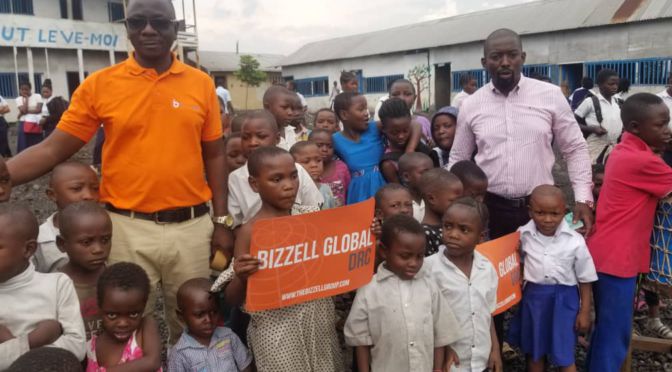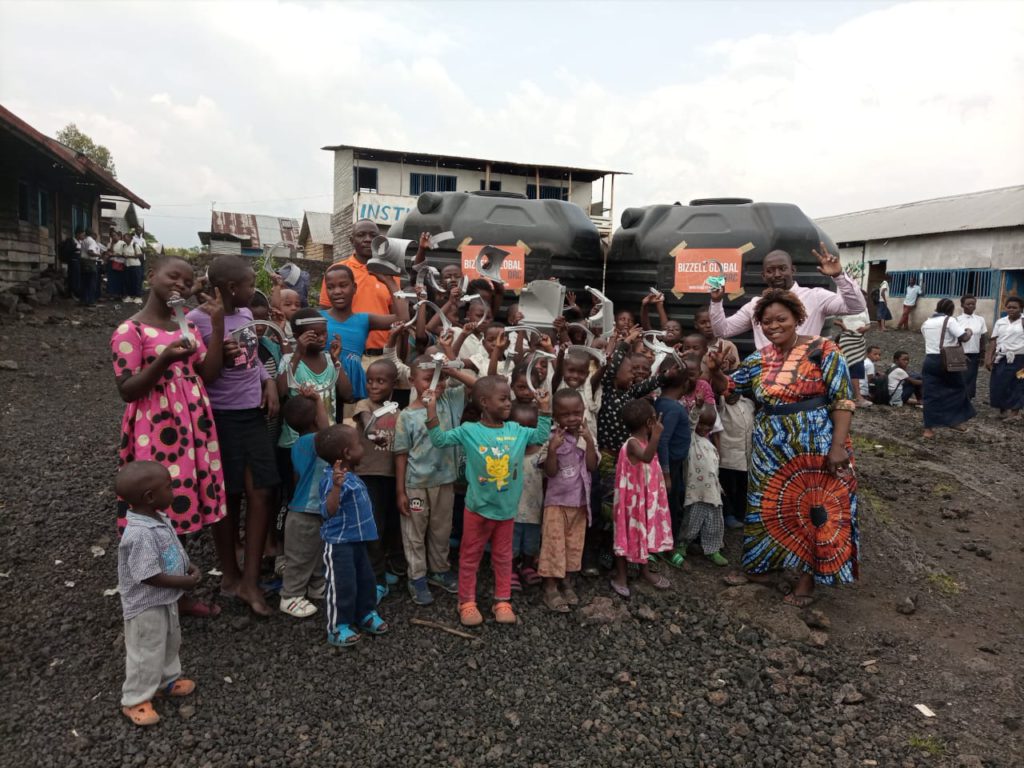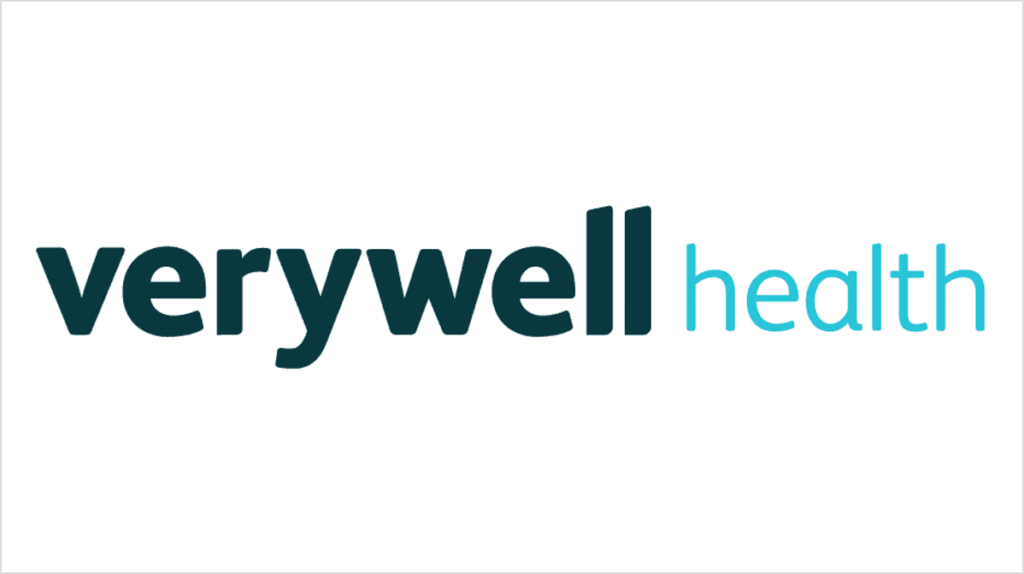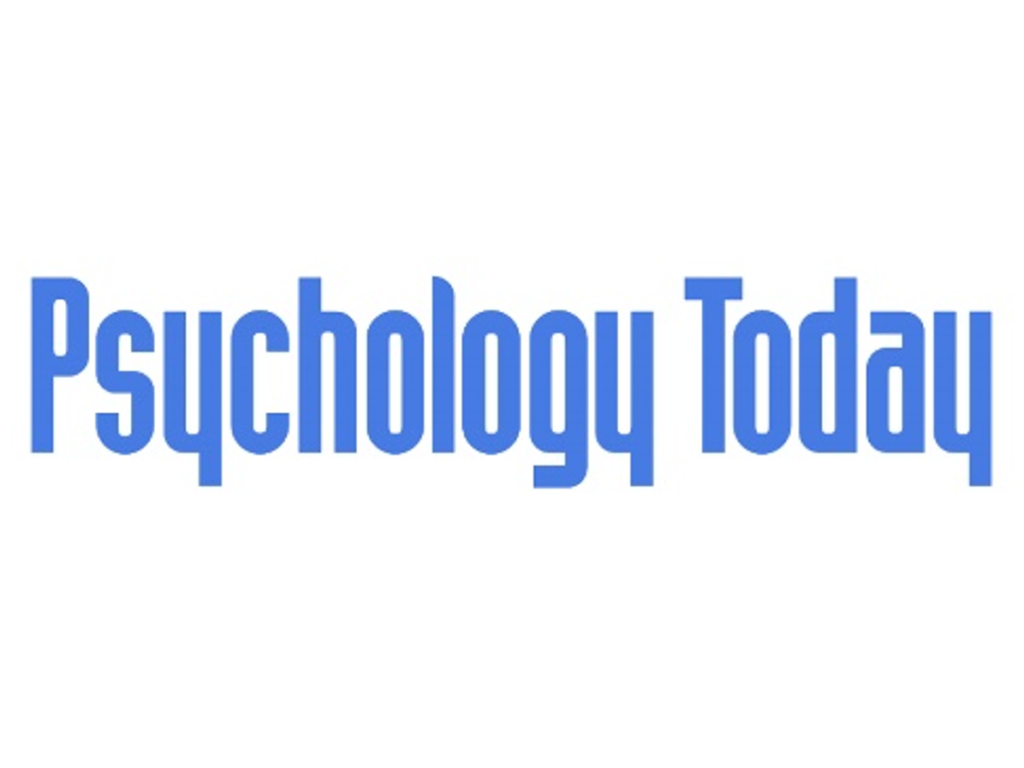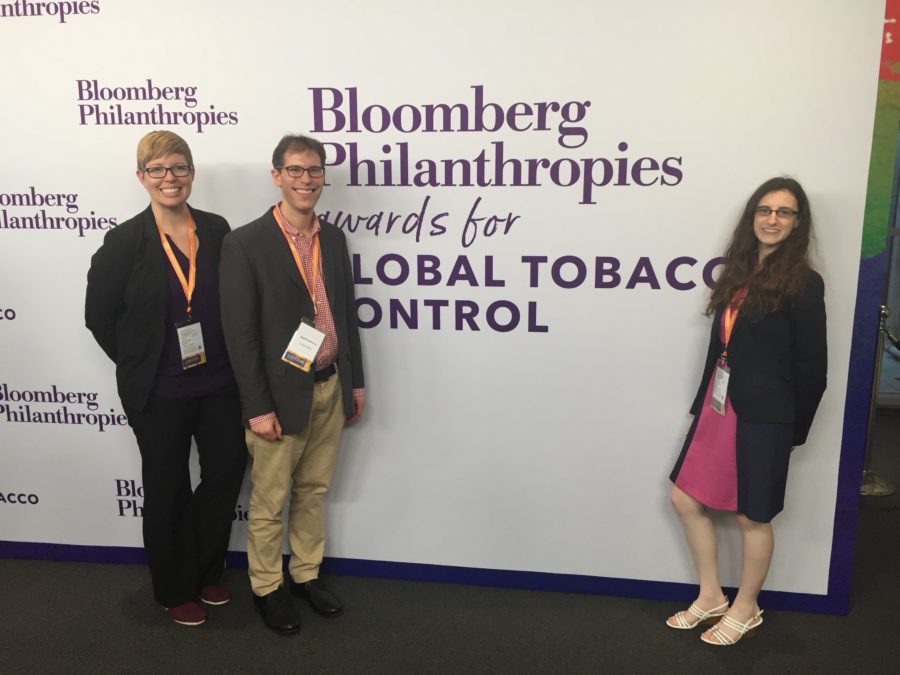Bizzell Provides Access to Safe Drinking Water for Children in Africa
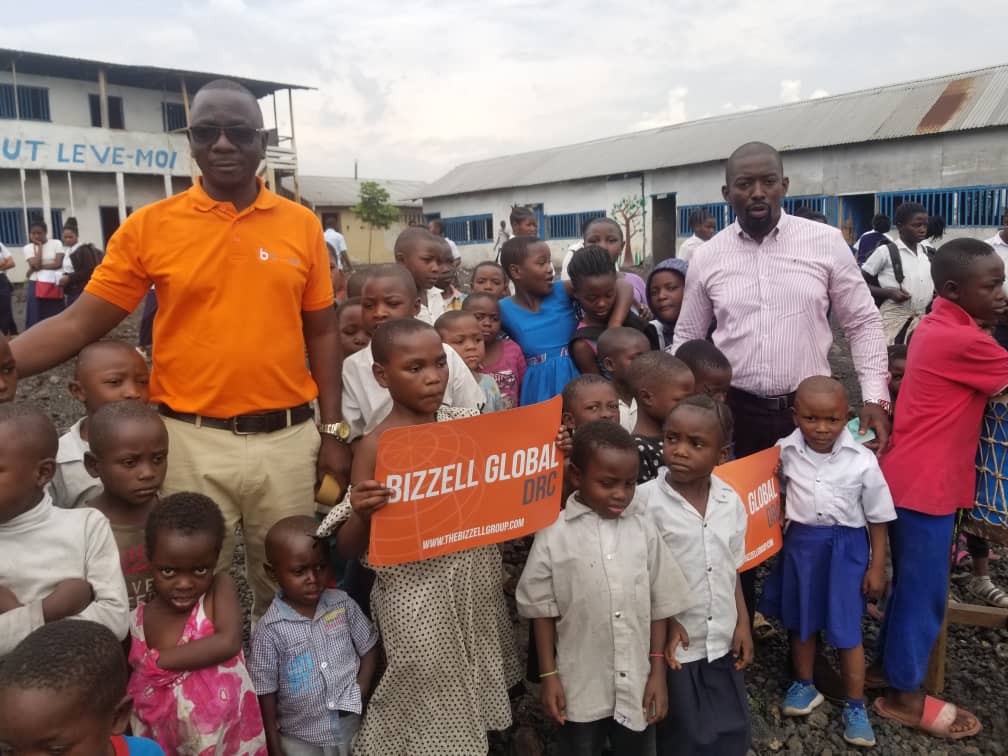
January 11, 2021 (Lanham, MD) – The Bizzell Group (Bizzell) continues to lead in their commitment to improving lives globally, including some of the most vulnerable children in developing countries. Bizzell recently donated water tanks and sinks for young children living in Leve Moi Orphanage in Goma, the Democratic Republic of the Congo (DRC). Leve Moi Orphanage was founded to serve children orphaned by natural and manmade disasters. The orphanage does not receive any state funding and relies on the goodwill of donors like Bizzell to develop and sustain their essential services to the children of the community. Leve Moi Orphanage currently houses 69 children ages 0-17. They also support an additional 500 children from the surrounding community with free education and school meals.
“Clean, safe, and accessible drinking water, a vital natural resource, is critical to human health and sustainable communities, yet dangerously scarce in many parts of the world,” said Rose Amolo, Bizzell’s Director of Global Programs & Strategic Partnerships. “Clean drinking water and handwashing are essential components of health and reduce incidence and spread of infectious diseases and illnesses such as Ebola, COVID-19, and other health conditions at high risk of spread. Bizzell’s donation will directly impact the health outcomes of these children and their community.”
Bizzell’s global philanthropic efforts focus on the provision of effective, efficient, timely, and fiscally responsible health, youth, and economic solutions that improve the overall quality of life for people in low, emerging, and middle-income countries. Using a participatory approach, Bizzell’s experts leverage best practices and methodologies from work with various federal agencies and multinational organizations to effect change. Bizzell integrates diversity in all global activities and recognizes and builds on the inherent knowledge, cultural insights, and expertise of local communities to develop data-driven, research-informed, innovative solutions.
Bizzell’s most recent work in the DRC includes projects with the Centers for Disease Control and Prevention (CDC), international coalitions, and local health agencies, to combat both the Ebola COVID-19 pandemics through medical, epidemiological, technical assistance, and transportation/logistics support. Bizzell’s donation to the Leve Moi orphanage continues our commitment to integrating our subject matter expertise and our philanthropic focus to build healthy, secure, connected, and sustainable communities around the world.
About Bizzell
Established in 2010, The Bizzell Group (Bizzell) is a U.S. Small Business Administration (SBA) 8(a) strategy, technology, and consulting firm. Starting with our passion to improve lives, Bizzell has evolved as a leader in some of the most exciting and critical issues of our time, including training thousands of opioid treatment providers, tackling the Ebola epidemic in the Democratic Republic of the Congo, creating new ways to reach U.S. military members at risk of suicide, and promoting and securing global health. Under the leadership and vision of founder, Dr. Anton C. Bizzell, the company has grown from a staff of two in one small office to a thriving firm with offices in New Carrollton and Rockville, MD; Atlanta, GA; Democratic Republic of the Congo; and Lagos, Nigeria; with many more projects around the world.

